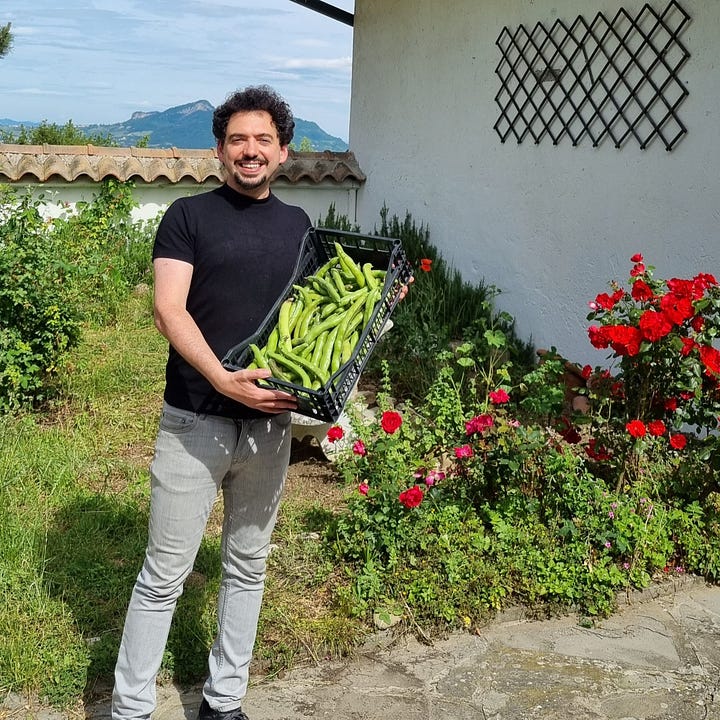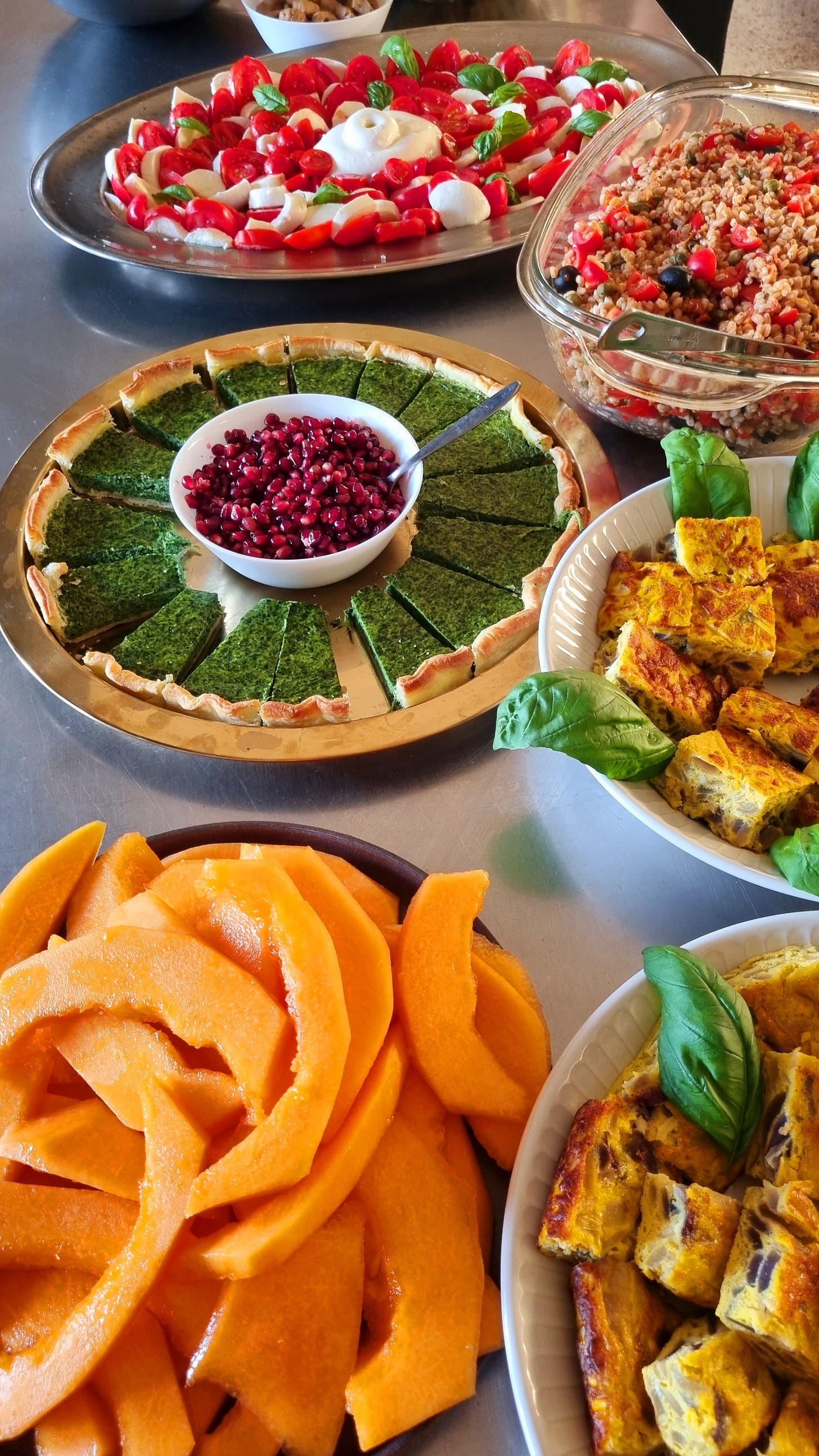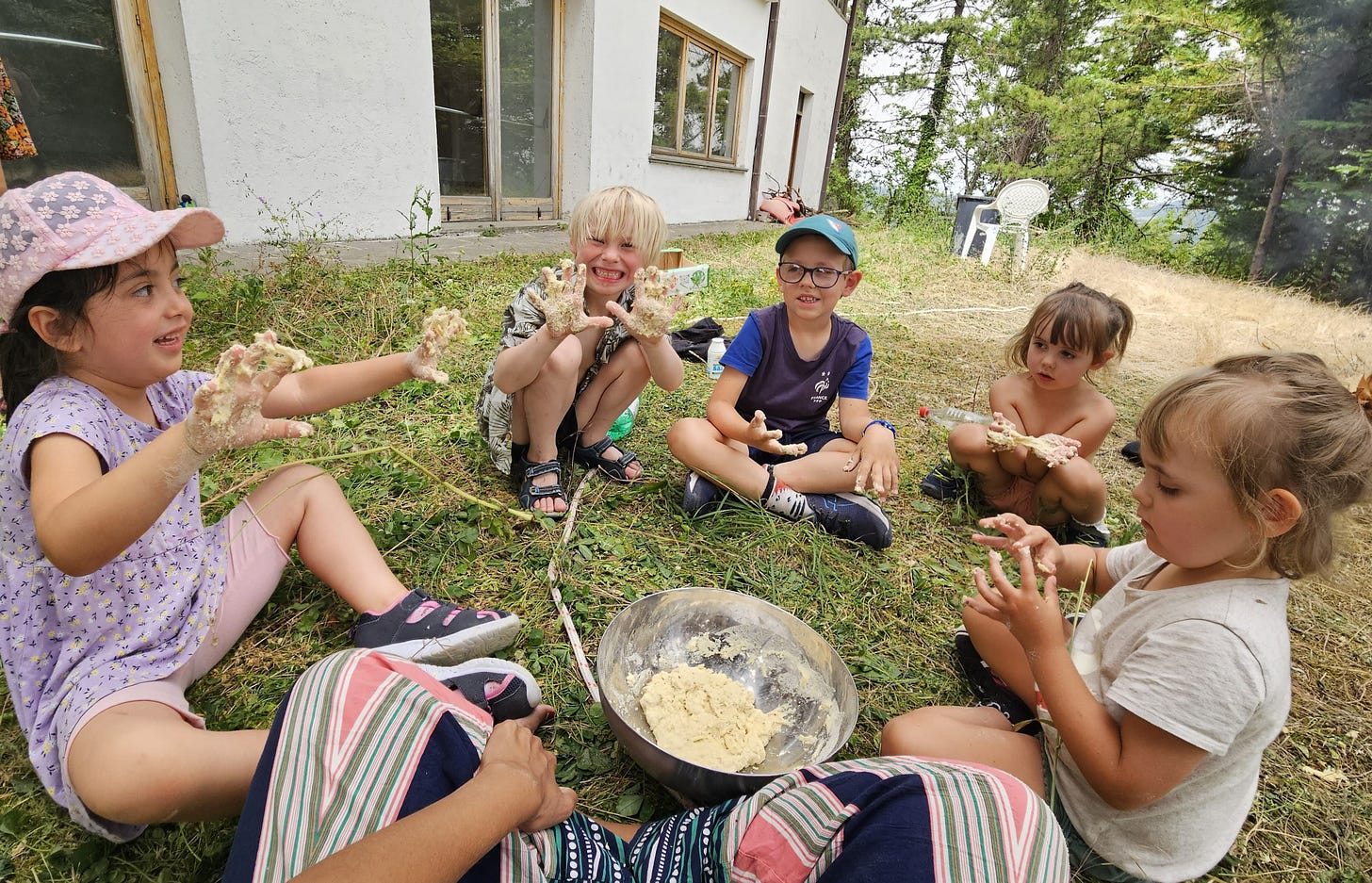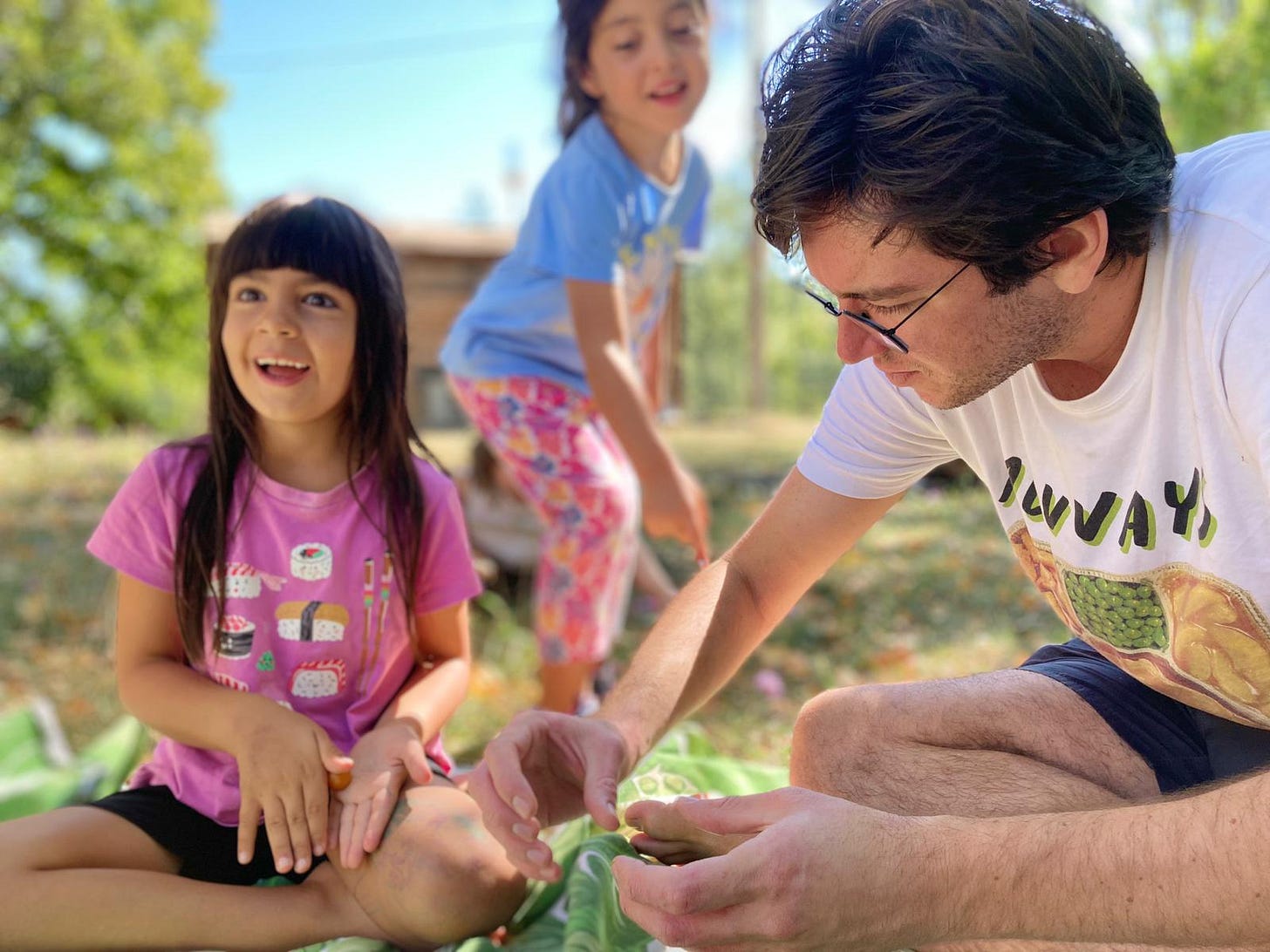The birth of a global network
A blueprint for our sustainable future
This was the year that Honeydew went global. With the inauguration of our first community in Brazil in April, and with another to follow next month, we are sowing seeds in a land perfectly suited to communal ecology. At Honeydew, we speak of sharing ‘natural abundance’ against the consumer culture of ‘artificial scarcity’. In Brazil, this is not a theory, but a living possibility: our site in Teresópolis is a tropical haven, rich in mangoes, avocadoes, and lychees. Now we are harvesting these fruits together.
In January, we will be exploring an exciting new project in São Lourenço (Minas Gerais) and launching our third community, at Sol da Floresta, in the lush mountains between Petrópolis and Magé (Rio de Janeiro). This event, inaugurated with a ceremony by indigenous Huni Kuin, will be overseen by Pollen da Silva, Honeydew’s national coordinator in Brazil and the founder of Sol da Floresta (Sun of the Forest). Thereafter, we will be on a tour of communities around the country, from Pará in the north to Florianópolis in the south.
For our community in Italy, 2024 was a year of significant media coverage. From fashion magazines (ELLE) to financial newspapers (Il Sole 24 Ore), Honeydew has emerged as a leader in a global trend. The pandemic highlighted our disconnection from the earth and from each other, and this has sparked a ‘return to the land’ — a coordinated response to lonely city life, with a deep yearning for the felt presence of community.


Even as we spread our wings abroad, Honeydew is developing links with other Italian communities, and our activities have been reported by various local newspapers, including Il Resto del Carlino, one of the nation’s oldest journals. Meanwhile, in Italy’s ‘pink paper’, which focuses on economics, Honeydew’s initiative is discussed in the context of the repopulation of abandoned rural towns:
In June, The Guardian returned to Honeydew to record a documentary about the community, which you can watch below:
The Guardian’s film was subsequently picked up by the prominent magazine Internazionale, which published it with Italian subtitles. As the global reception to this film shows, we have designed a template that works — one that resonates with alienated urbanites from São Paulo to Los Angeles, from London to Milan and beyond. What are the key ingredients to our formula?
Co-creating community. Honeydew balances the need for solidarity and individuality, which we contrast with the competitive culture of individualism. We have created a trusting, nurturing container in which residents and volunteers are encouraged to experiment, cultivating their talents and sharing them in service to the community. This ethos, which we call radical trust, is based on the belief that there is a generous ‘social soul’ in each of us that has been suppressed by the transactional culture of capitalism.
At the heart of community life are shared moments of co-creation, such as the evening meal, prepared and cooked by a gifted team, and celebrated with gratitude, evident in this performance by Ukrainian soprano Iryna Dynnikova:
Collective sufficiency. Honeydew is rooted in a deep conviction about the untapped capacity of groups to govern themselves, wisely and with long-term priorities. The aim of all our communities is to be functionally self-sufficient, both in terms for energy (in Italy, electricity comes from our 147 solar panels) and food: we are committed to producing all our own fruit and vegetables within a five-year period. Our ‘Adverse Events Preparation’ group is helping us anticipate the challenges ahead, particularly in relation to climate change. Unlike the homesteading movement, we do not speak of ‘self-reliance’ but rather ‘collective resilience’.


This approach has already brought much sweetness: in 2024, Honeydew’s bees produced 23 kilos of exquisite honey (subtle and rich to the taste). Our honey project is an exemplar of communal entrepreneurship: the initiative of a member of our leadership team, Sahar, whose son learned to walk in the community, and in partnership with regional experts whose knowledge and experience ensured its success. Next year, we will increase our hive capacity five-fold, helping regenerate the local environment in the process.
Focus on the future. In 2024, we launched our forest school on site, as we build an eco-village to raise a child. (At Honeydew, we do not regard this simply as a slogan, but as the material condition for a rounded education). Led by specialist forest school teachers, children aged 3 to 12 have flourished in this natural setting — a wild wood spread over 2.5 hectares, bordered by flowing streams.
In June, our community in Italy numbered 35 people: 26 adults and 9 children, speaking 11 different languages. It’s a hint to why we describe Honeydew as ‘cosmopolitanism in the countryside’ — and it’s something we endeavour to share with daily language classes.
You can read more about our school initiative on our website, now available in three more languages: Italian, French, and Portuguese. We will be exploring many of these topics in greater depth on our forthcoming Honeycomb podcast.
To end 2024, the talented filmmaker and musician Alex Delfont created a beautiful short film about our community in Italy, from the perspective of its members and volunteers.
We hope that you will share this video, as well as news of our progress, with friends who may be interested in the network. This year has shown us that there is a great hunger for a truly sustainable alternative, and we hope to collaborate with interested parties around the world.
We wish you all a joyful and abundant new year — one filled with hope for our brighter collective future!










Thanks for the beautiful work you're doing to steward this new and ancient way of living. Humanity thanks you.
It looks like you have built my dream! 😍 Beautiful, I'd love to come and visit, I'll be in touch 🙏💗